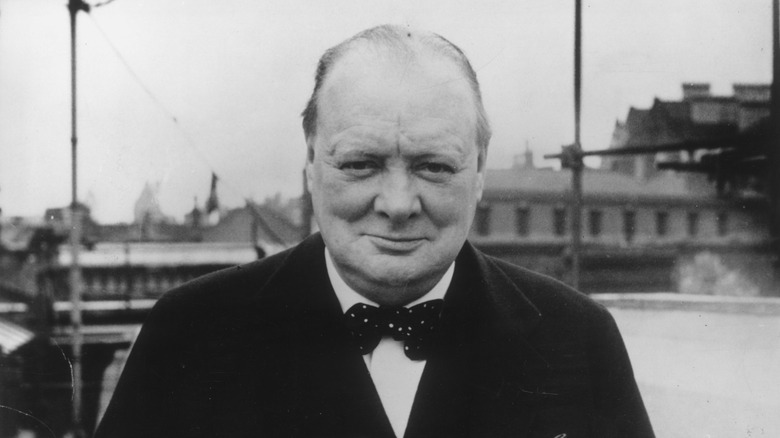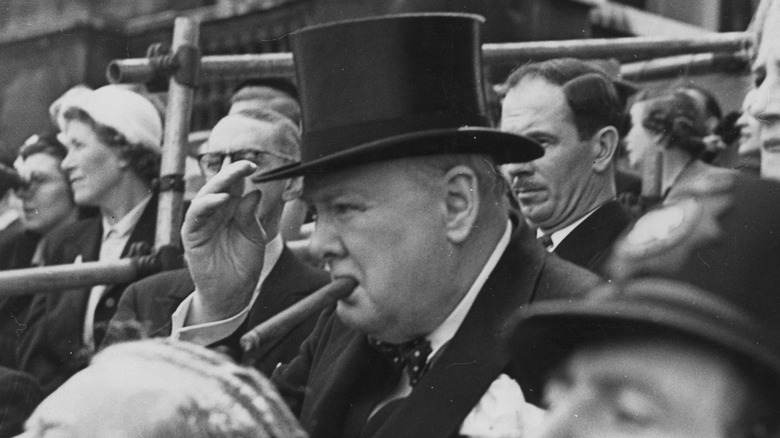Winston Churchill's Favorite English Dish Is A True Classic
Winston Churchill is remembered for deftly guiding England through World War II. The mere mention of his name conjures up images of the man standing with a glass of scotch in one hand, a lit cigar in the other, and a homburg hat firmly planted upon his head as he opines upon the sacrifices needed to defeat the Germans. Churchill embodies everything English, for both good and ill, so it's no surprise that one of his favorite foods is British to its core. The former Prime Minister was known for having an insatiable love for eating and drinking. His taste ranged from the finer things (lobster and stilton cheese) to the mundane (he preferred consommé soups), but it was British fare like roast beef and Yorkshire pudding that he requested most often.
If you're not well versed in British cuisine, you may have raised your eyebrows at the idea of roast beef and pudding. In the United States pudding refers to a specific type of dessert (known as "custard" across the pond), but in England, it loosely refers to a dish prepared by being steamed or boiled in a substance. A pudding can be sweet (figgy pudding) or savory (black pudding). Yorkshire pudding is traditionally made by placing a pan underneath the beef as it roasts, mixing the fat and drippings with eggs, flour, and milk (or water), then baking it. The pudding most closely resembles a popover and is served alongside the roast beef.
Seeing a giant through his chef's eyes
Starting in 1939, Georgina Landemare spent 15 years working as the personal chef for the Churchill family. Landemare first published a collection of the recipes enjoyed by the Churchills in 1958, with the book being re-released in 2015 as "Churchill's Cookbook." It was through her eyes that the greater public learned of Churchill's fondness for roast beef and Yorkshire pudding, as well as his dislike of stews and Chinese food.
During the war, the Churchills weren't exempt from rationing — they used the same ration book as everybody else in England. This isn't to say that the Churchills ate the same way, though, as they were able to supplement their rations with food grown on the large estate and farm at Chartwell that they called home. This bounty and gifts from supporters of the PM combined to ensure that Landemare's pantry was never bare; she was able to prepare all of Churchill's favorite dishes (and his beloved Pol Roger champagne) throughout the war.
Landemare's recipes offer a peek at the meals that provided the energy behind Churchill's vim and vigor. They often say that an army runs on its stomach, so it shouldn't be too surprising that the leader of an army also benefits from a good meal. Shortly after giving a speech declaring victory in Europe, Churchill let Landemare know that he wouldn't have made it through the war without her cooking, including his favorite roast beef and Yorkshire pudding.

